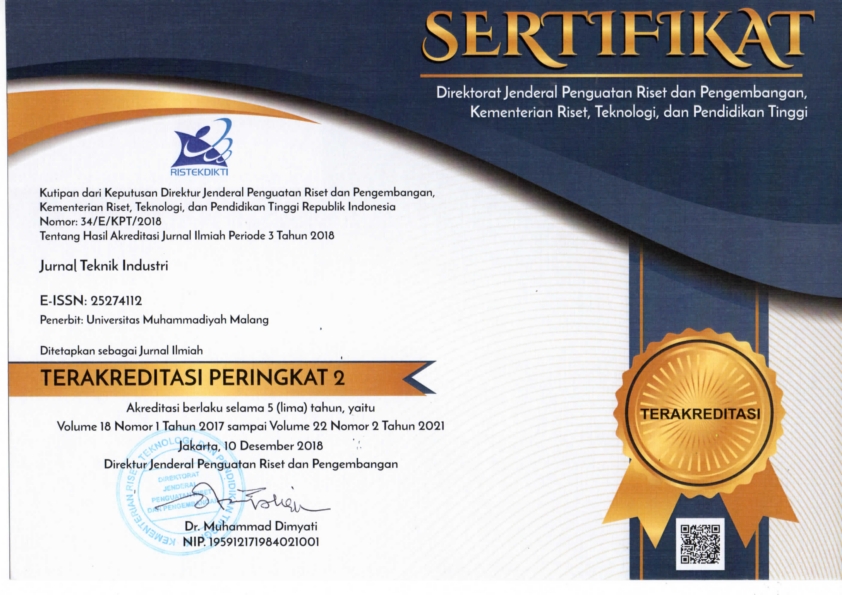Perancangan Tata Letak Mesin Dengan Menggunakan Konsep Group Technology Sebagai Upaya Minimasi Jarak dan Biaya Material Handling
DOI:
https://doi.org/10.22219/JTIUMM.Vol1.No1.71-79Keywords:
layout, group tehcnology, material handlingAbstract
PT. Berlina Tbk Pandaan is a company that produce already use plastic product package. Some of its product are Nivea bottle, Lux shower bottle, packaging of sheats and the other form variation. The processing to make it, need at least twice a process of machine. All those product through some operation which happened a long way material handling from one machine to another. As main product facility is through the the machine layout can be seen that machine placement still arbitrarily, and it will cause product current longer so that cost and distance fo rmaterial handling also bigger.
To solve this problem, we have to study a theory group technology. Major point f this theory is machine grouping become machine cell also product grouping become part family so that, later, each machine cell will produce a certain of part family according certain criteria. With the computer program called gtlaypc.exe, part family and machine cell can be know and use it for planning a machine layout.
The result of machine layout planning using group technology is total distance 27853,5 m per day and 18978 m per day smaller from the earlier exiting machine layout so that the cost of material handling plan Rp. 35109,3 per day more smaller. Planning the machine layout with the group technology can minimalize of cost and distance material handling











